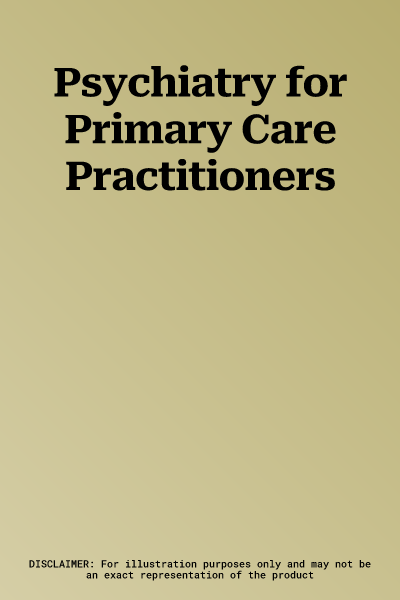Because of reluctance to acknowledge a behavioral or psychiatric problem
or a fear of social stigmatization, many patients with mental illness
are likely to seek treatment from primary care practitioners rather than
psychiatrists. Especially now with managed care requirements, the
primary care practitioner is called upon to competently screen and
possibly manage mental illnesses in patients before refering to a
psychiatrist.
Concise Guide to Psychiatry for Primary Care Practitioners is designed
as a quick reference to help primary care practitioners to better
understand, diagnose, and initially manage mental illnesses. This
easy-to-read manual represents the collaborative efforts of 17
experienced psychiatrists from a variety of specialties. Specifically,
it covers: - A practical approach to screening and managing patients
with psychiatric disorders- The most recent developments in
psychopharmacology and lists recommended dosages for medicationsGeneral
guidelines for treatment of many psychiatric disorders- Recommendations
on when to refer patients to psychiatrists- Conditions likely to be
encountered in the primary care setting including mood disorders,
anxiety disorders, substance use disorders, cognitive disorders,
somatoform disorders, psychotic disorders, sexual disorders, sleep
disorders, and eating disorders- Effective strategies in treating
patients that can be difficult to manage and provides guidance for
primary care physicians in anticipating and preventing both suicide and
violence
With more than 50 supplemental tables containing helpful summaries of
diagnostic criteria, medications, and management techniques, this
user-friendly guide is a practical on-the-job reference.

